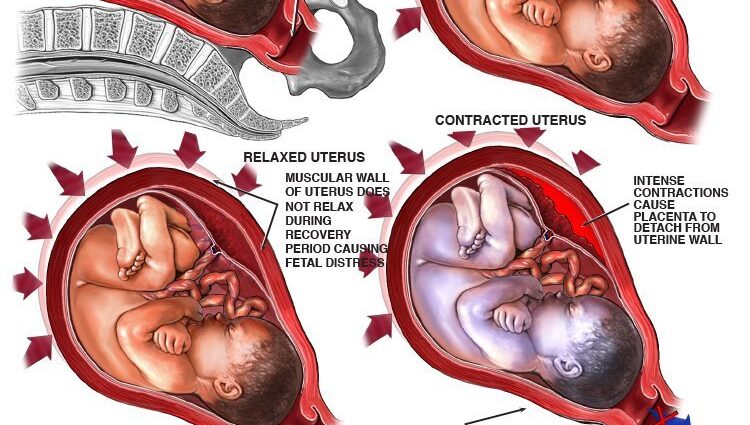Contents
Hypertonia during pregnancy
Hypertonicity of the uterus during pregnancy is a sign of a high risk of complications. Due to spasms, the nutrition of the fetus is disrupted, which can lead to developmental disorders and even miscarriage. It is important to recognize a dangerous condition in time in order to take urgent measures.
Hypertonicity during pregnancy is dangerous for the fetus
Why is hypertonicity dangerous during pregnancy?
Hypertonicity is the increased tension and contraction of the muscles of the uterus during gestation. Blood begins to circulate poorly through the blood vessels, and the baby receives less oxygen and nutrients than necessary. This condition can provoke serious complications:
- preterm delivery;
- miscarriage;
- frozen pregnancy;
- pathology of fetal development;
- hypoxia.
How do you know if you have hypertonicity during your pregnancy? The most obvious symptom is discomfort in the lower abdomen, which is somewhat reminiscent of pulling pain during menstruation.
The intensity of symptoms is different for everyone: from mild to severe, severe, and sometimes bleeding from the vagina appears. In this case, it is necessary to urgently consult with a gynecologist, conduct an examination and eliminate the risk of complications.
Causes of uterine hypertonicity during pregnancy and first aid
Treatment options will depend on the underlying cause of the disease, including:
- recent stress;
- heavy physical labor;
- the presence of infectious and viral diseases;
- hormonal disbalance;
- oncological diseases;
- multiple pregnancies;
- pregnancy with a large fetus;
- smoking, drinking alcohol, using drugs.
After confirming the diagnosis, it is necessary to start treatment and strictly follow all the instructions of your gynecologist. The expectant mother needs to relax, pay increased attention to her psychological state: do not worry, rest more and lie down, take preparations based on herbal ingredients, for example, valerian or motherwort broth.
In case of a lack of progesterone, hormone therapy is performed. Most often, Utrojestan or Metipred is used. Medicines are prescribed individually for each patient, taking into account the state of health, the intensity of hypertonicity and contraindications.
Vitamin complexes, which include magnesium and vitamin B6, help relieve muscle spasm. Magnesium promotes efficient absorption of calcium and reduces the risk of blood clots, while vitamin B6 fights stress.










